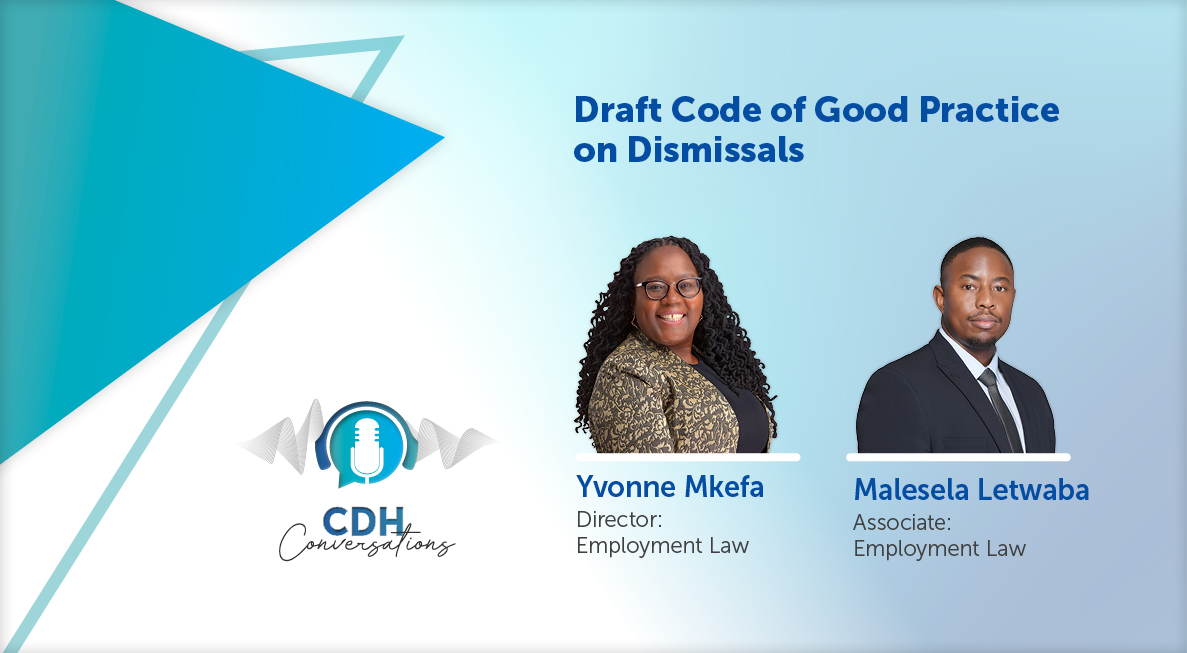“If I did not sign it, I am not bound”
A State Attorney (the Attorney) represented the employer in settlement discussions and made a written offer of settlement. The employees rejected the offer and made a counterproposal. The Attorney rejected the counterproposal and indicated that his initial offer remained open for acceptance until a specified date, failing which litigation would ensue. The employees accepted the initial offer. However, they signed the written agreement after the specified date for acceptance had lapsed. Thereafter the employer refused to sign the agreement, disputing the Attorney’s authority to make the settlement offer to the employees.
The employees took the matter to the Labour Court (LC) to have the settlement agreement made an order of court. The LC held that the Attorney had ostensible authority to settle the matter on behalf of the employer. He had made an offer which they accepted. This constituted a binding agreement, irrespective of the fact that it was not signed by the employer. The LC reasoned that the employer’s signature was not necessary, the written agreement would have only served as a convenient record of proof that a prior verbal agreement had been concluded.
On appeal, the employer argued that it was merely cited as a party to the agreement but it had never signed it. The Attorney’s offer was subject to obtaining a mandate from the employer who was liable for the settlement amount. In the absence of such signature, there can be no binding agreement which can be made an order of court. Conversely, the employees argued that the Attorney, who duly represented the employer, made an offer which they accepted and the employer’s signature was merely a formality not affecting the validity of the agreement.
The LAC referred to the contractual law principles of offer and acceptance and held that it is usually regarded as self-evident that a counterproposal incorporates a rejection and therefore destroys the original offer. Where the offer is repeated after rejection of the counterproposal, it constitutes a new offer. In this case, the Attorney’s initial offer became a new offer when he rejected the employees’ counterproposal. He specified a date for acceptance which lapsed prior to the acceptance of the offer by the employees. It could therefore not be said, when considering the contract law principles of offer and acceptance, that a binding settlement agreement had been concluded. An informal verbal contract that was not intended to be binding until reduced to writing and signed, does not constitute an enforceable contract until signed by both parties. A court will assume that the object of a written agreement was merely to facilitate proof of a verbal agreement unless it is clear that the parties intended that the writing should embody the entire contract.
Furthermore, the employer’s authority in the form of its signature was necessary because it was liable to pay the settlement amount from its budget. The objective facts also showed that the parties intended the contract to be in writing and signed by both of them. The fact that the parties included a non-variation clause in the agreement further confirmed this intention. The LAC dismissed the LC’s decision and held that the intention of the parties was that the agreement be in writing and signed by both of them. Furthermore, the offer the employees accepted by signing the agreement had already lapsed on the specified date of acceptance.
This case provides an important lesson when concluding settlement agreements: If the parties’ intention is not to be bound by the agreement until such time as it is reduced to writing and signed by the parties, and the written agreement is evidence of this intention, the parties must ensure that they all sign the written agreement. If they fail to do so, they will not be bound by the agreement.
The information and material published on this website is provided for general purposes only and does not constitute legal advice. We make every effort to ensure that the content is updated regularly and to offer the most current and accurate information. Please consult one of our lawyers on any specific legal problem or matter. We accept no responsibility for any loss or damage, whether direct or consequential, which may arise from reliance on the information contained in these pages. Please refer to our full terms and conditions. Copyright © 2026 Cliffe Dekker Hofmeyr. All rights reserved. For permission to reproduce an article or publication, please contact us cliffedekkerhofmeyr@cdhlegal.com.
Subscribe
We support our clients’ strategic and operational needs by offering innovative, integrated and high quality thought leadership. To stay up to date on the latest legal developments that may potentially impact your business, subscribe to our alerts, seminar and webinar invitations.
Subscribe



